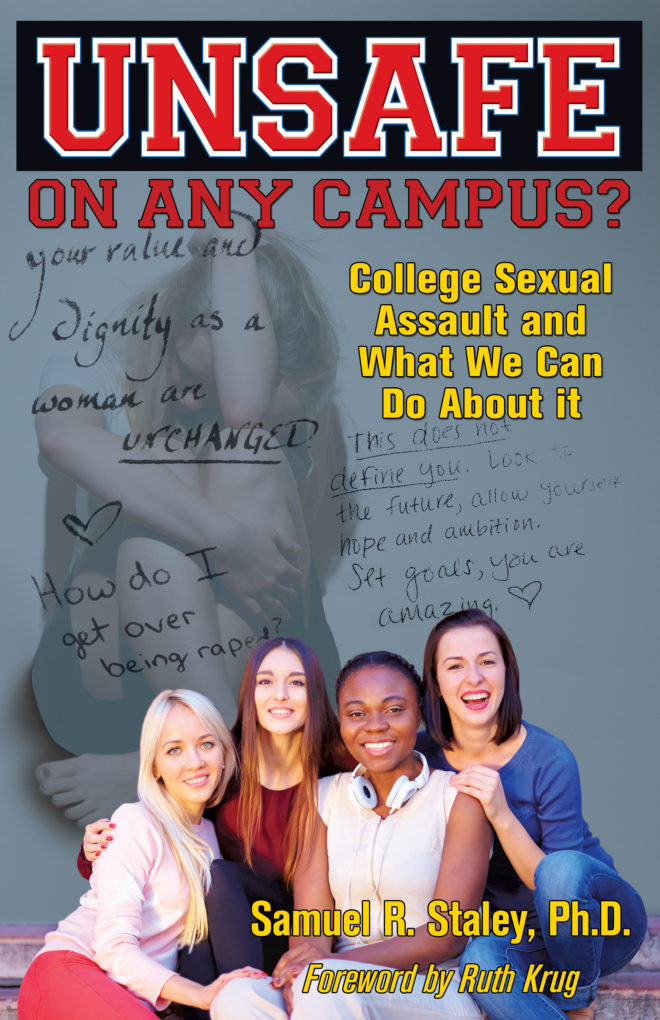Rolling Stone Defamation Conviction Reveals Danger of Dogma When Addressing Campus Sexual Assault
 Former University of Virginia associate dean Nicole P. Eramo won her defamation lawsuit against Rolling Stone magazine, and the implications are significant. Successful defamation suits are rare in the U.S., in large part to protect the freedom of speech and press. I think, however, the jury verdict was correct in this case. Indeed, the verdict highlights the problem of what happens when an enormously complicated problem is shoeboxed into a simple storyline informed more by dogma than evidence.
Former University of Virginia associate dean Nicole P. Eramo won her defamation lawsuit against Rolling Stone magazine, and the implications are significant. Successful defamation suits are rare in the U.S., in large part to protect the freedom of speech and press. I think, however, the jury verdict was correct in this case. Indeed, the verdict highlights the problem of what happens when an enormously complicated problem is shoeboxed into a simple storyline informed more by dogma than evidence.
In short, Rolling Stone published a story using the point of view of a woman who claimed she was gang raped at a UVA fraternity. The story began to fall apart rather rapidly as other journalists began investigating the victim’s claims, many of which appeared extreme on their face. The staff journalist failed to conduct her due diligence in verifying their truth, and criticized UVA administrators for failing to respond. (See a useful summary of how the story began to unravel by Robby Soave at Reason magazine here.)
Eramo was featured prominently in the article and, in the narrative, became the face of university intransigence, denial, and insensitivity. Eramo sued, and the jury found that the journalist and magazine, in the words of the New York Times (Nov 4, 2016), “acted with actual malice, a legal standard that means that the publication either knew the information published was false, or acted with reckless disregard for whether it was true or not.” I believe in this case the magazine acted in reckless disregard for the truth in order to fit an internal narrative supported by the magazine’s organizational culture.
Rolling Stone eventually retracted the article, but only after other journalists made it almost impossible for the editors to support the story (and its narrative) based on the facts. The idea that a gang rape could occur in a fraternity without consequence had become so embedded in the journalistic world view of the magazine that researching the veracity of the claims by the victim was given low priority, even to the point where inconsistencies and holes in the story didn’t have to be investigated.
The case is a welcome step toward accountability for some in the media who have accepted a narrative on campus rape that over simplifies a very complex problem and where solutions require layered and nuanced responses. For example, research suggests that most reported rapes are not false, with false reporting ranging from 2% to 10%. An uncritical journalist (or other advocate) could easily jump to the conclusion that the details of the claims made by victims are true, including the identity of the perpetrators and circumstances surrounding the event. But the nature of human trauma complicates this conclusion.
The trauma of rape and sexual assault is most often psychological. The offenses are often perpetrated in isolated places such as bedrooms, apartments, or dimly lit areas. Once the complications of alcohol and drug use are added to the psychological trauma, victims’ stories often have holes or inconsistencies that make successful prosecution or ironclad verification of specifics difficult. But, as I discuss extensively in Unsafe On Any Campus? College Sexual Assault and What We Can Do About It?, the lack of evidence necessary to secure conviction in a criminal trial does not mean the rape or assault didn’t happen, or that someone didn’t perpetrate severe harm, or that someone wasn’t traumatized by the experience. Rather, conventional institutions, including the criminal justice system, are inherently incapable of achieving justice and addressing the harm created in many campus rape situations. A more holistic approach that is trauma centered and recognizes the complicated nature of the problem (and solutions) is necessary (see here and here).
The Rolling Stone defamation case is likely to become a signature event in the campus rape policy discussion. Some may worry that the suit may stall their efforts. However, if the public discussion now shifts from simplistic solutions to more nuanced and comprehensive approaches, including those that focus on rebuilding civil society on campus, real progress might be made on containing and even eradicating this serious problem at many of our colleges and universities.





